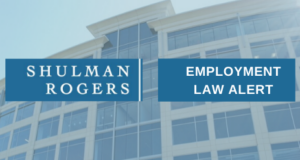
On November 8, 2022, voters in Washington, D.C. chose to eliminate the lower minimum wage—called the tipped minimum wage or tip credit rate—for tipped workers by approving ballot Initiative 82.
The tipped minimum wage allows establishments whose customers pay partially via tips, such as restaurants, salons, parking facilities, etc., to pay employees a sub-minimum wage of $5.35 per hour, as long as employees make up the rest of the full minimum wage, currently $16.10 per hour, in tips. If they do not make up the rest in tips, the establishment must “true them up” to make up the difference.
The passage of Initiative 82 means that, assuming the D.C. counsel does not overturn it (as it did in 2018, although this is not likely to happen again) and assuming it makes it through the 30-day congressional review period, D.C. tipped establishments will have a phase-in period to slowly bring their employees up to the full minimum wage by 2027. As it currently stands, the phase-in schedule would be as follows:
|
Date (on or before) |
Minimum Wage Requirement |
|
January 1, 2023 |
$6.00/hr. |
|
July 1, 2023 |
$8.00/hr. |
|
July 1, 2024 |
$10.00/hr. |
|
July 1, 2025 |
$12.00/hr. |
|
July 1, 2026 |
$14.00/hr. |
|
July 1, 2027 |
Minimum wage |
This means that tipped establishments in D.C. will need to make changes. Establishments could raise prices to offset the increased wages they will now have to pay. Establishments could also change their business models to reduce labor costs—such as restaurants requiring customers to order on their phones and solely using runners to run food. Establishments could eliminate tipping and impose a service charge instead. Finally, establishments could employ a hybrid method of still permitting customers to tip and imposing a service charge on top. Each pathway has its own employment law hurdles.
If establishments intend to let staff go to reduce labor costs, they could run afoul of various state and federal statutes if employee terminations are not handled correctly. If establishments instead opt to impose service charges, service charges paid over to employees generally must be included in their wage calculations for determining overtime rates and the fact that service charges are being imposed must be carefully communicated to patrons. Finally, if establishments opt to employ a hybrid method of using both tips and service charges, employers must still abide by the myriad of regulations involving tips and tip pools. Tipped establishments should consult with employment counsel to discuss each potential path forward.
The contents of this Alert are for informational purposes only and do not constitute legal advice. If you have any questions about this Alert, please contact the Shulman Rogers attorney with whom you regularly work or a member of the Shulman Rogers Employment and Labor Law Group.
To receive Employment Law Alerts and other timely news and information from Shulman Rogers, please click HERE to subscribe.
Stay up to date with all the latest news and events.